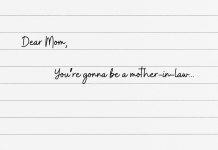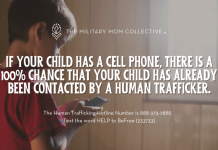
My mother and I were never close.
My older brother and I grew up in a turbulent household. We moved frequently and often woke to shouts and the sound of things breaking. Many nights, we were shuttled into the car, pajama-clad and scared, sometimes spending the nights at a hotel or at a friend’s house. Some nights I had to call the police on my mother and step-father.
Once, I watched my mother leave the house strapped to a stretcher after attempting to jump out an upstairs window. I was nine, and I kept my older brother and younger step-siblings occupied with brownies and cartoons.
As I grew older, I realized that much of the violence that occurred in our house stemmed from my mother’s own behavior. She would push and push, throw things and scream. Often she was the first to strike. Throughout my teenage years, she would violate boundaries, open our mail, and blame my brother and I for her deteriorating personal relationships. She would also try to keep me and my brother dependent on her, then use our own maternal needs against us.
By the time I was 11, I stopped having friends over. At 16, I paid for my own car, insurance and expenditures such as gas, clothes and school expenses. One day during my junior year of high school, I came home excited about the possibility of going to college on early admission. Her words stopped me cold: “Don’t expect me to pay for it.”
I didn’t.
By 18, I left home, paying my own way through college. At 22, I joined the Air Force. It was my chance to have adventures, to pay off school loans, and to escape my family dynamics. It was one of the best choices I ever made.
It’s been 15 years since I left home, and I’ve changed in countless ways both big and small. I married, divorced and married again. I traveled the world, deployed twice, lost my dad and had three beautiful babies. All these experiences helped teach me maturity, patience and courage to work through the complicated emotions of my childhood and relationship with my mother.
Throughout the years, I’ve watched my mother self-destruct time and again. I’ve tried to reach out to her, to address the hurts of my childhood, to mend our relationship or simply to move on and try to enjoy her company.
Our adult relationship, much like my upbringing, has been rocky. We have good patches and then times where I can’t bring myself to call or see her. These are the times when the frustration of providing the parental role in our relationship grows too great such as when my mother alternately uses my successes as a tool for her own personal attention or a way to accent her own disappointments in life; the times when she refuses to learn Skype but then tries to make me feel bad for not seeing her grandchildren; times when I have to hang up on her because I don’t want to hear, yet again, that I’m abusing my children because we vaccinate.

It took me years to deal with the anger and sadness I’ve felt toward my mother and our lack of a relationship. I would love to have the kind of mother who visits or comes to help when we had a new baby. I would love to have the kind of relationship with my mother that I see between my friends and their moms.
But that isn’t the kind of mother I have.
Despite the constant wish that our relationship would be like those I see among my friends, I’ve come to accept my mother for who she is – a woman who did the best she could with the tools she had. I’ve accepted that she’s a deeply unhappy person who is unable or unwilling to see herself as a solution to her unhappiness. It’s much easier for her to blame others for her circumstances.
As a mother, I’ve had to make difficult choices about my own mother’s role in our lives. But sometimes when you become a healthy, well-adjusted adult, you have to examine certain relationships and be honest about how they affect you.
My mother is not good for me, not for my children and not for my relationship with my husband. I’ve purposely kept a distance, making infrequent calls and visits home. The few times we’ve seen her, I’ve paid for her to visit partly because she can’t be bothered to save for a plane ticket and because I can control the length of her stay.
For a long time, I felt guilty about the decision to not have her play a larger part in my and my children’s lives.
Other times, I’ve felt relief … then guilt over feeling relieved.
I recognize that a daughter’s relationship with her mother can be a complicated one, but I decided long ago, I would do better for my children.
The example my husband and I provide is a loving, stable home, with parents who respect one another and their children’s individuality. The chaos and drama my mother creates has no place in our lives. I can only hope that as my children grow, I have the wisdom and courage to let them experience the world on their terms.
Mother’s Day can be a difficult time for many women – for those who want to be a mother but can’t, for those who loved and lost a mom, and for those like me, who have a mom but can’t have a relationship with her.
Rather than mourning the lack of relationship I have with my mom, I will spend Mother’s Day immersing myself in all the good and positive things in my life. My Mother’s Day will consist of sweet, slobbery kisses, homemade cards and drawings, breakfast and coffee in bed, and trips to the playground.
I’ve done my grieving and now it’s time to heal.











